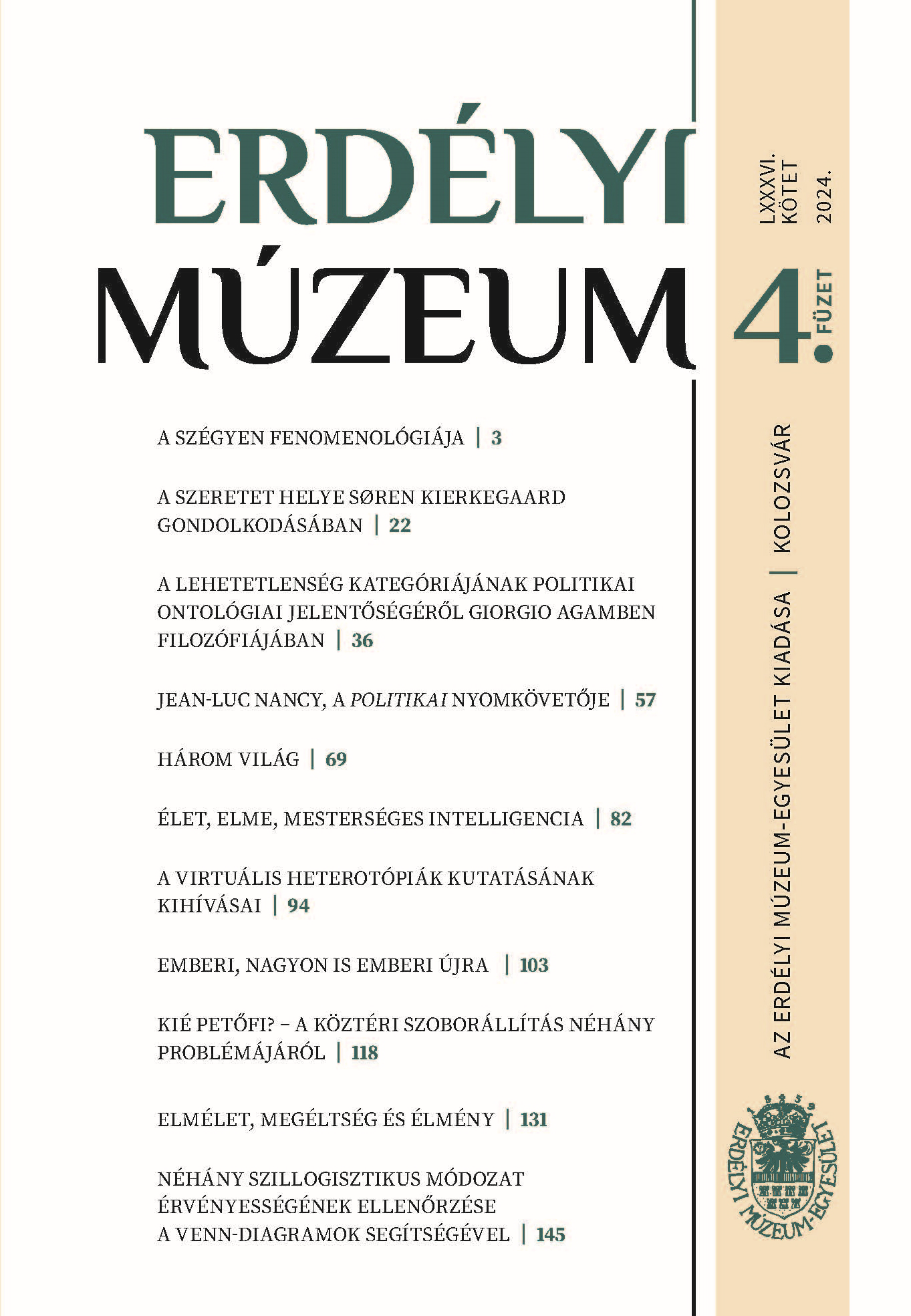Variációk a rahneri halálkoncepció kialakulásához
Variations in the Development of Karl Rahner’s Conception of Death
Author(s): Róbert HusztigSubject(s): Christian Theology and Religion, Phenomenology, Hermeneutics
Published by: Erdélyi Múzeum-Egyesület
Keywords: death; Rahner; transcendental anthropology; forma corporis; body-soul unity
Summary/Abstract: The study examines Karl Rahner’s concept of death, with particular attention to its Augustinian and Thomistic roots, as well as the influence of transcendental philosophy. St. Augustine’s understanding of death, which directs human life toward eternal life, serves as an important foundation for Rahner. For Augustine, recognizing God as the supreme „beauty” and seeking the heavenly homeland through free will in earthly life, ultimately „finding” the absolute beauty, is essential. St. Thomas Aquinas further refines this by emphasizing the unity of body and soul, which also points toward the divine purpose. Aquinas’ anthropology is a development of Augustinian thought. Rahner’s thinking was deeply shaped by Maréchal’s transcendental approach, which stresses the openness of the human cognitive process toward God. The aim of the study is to gain a deeper understanding of Rahner’s view of death in light of these thinkers’ influences.
Journal: Erdélyi Múzeum
- Issue Year: LXXXVI/2024
- Issue No: 4
- Page Range: 213-227
- Page Count: 15
- Language: Hungarian

